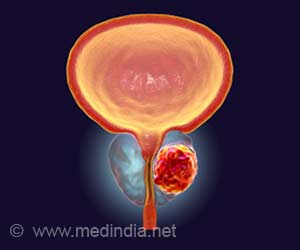According to a study conducted by the Northwestern University Feinberg School of Medicine, a less toxic, solvent-free chemotherapy drug is more successful in preventing the progression of metastatic
According to a study conducted by the Northwestern University Feinberg School of Medicine, a less toxic, solvent-free chemotherapy drug is more successful in preventing the progression of metastatic breast cancer with reduced side effects.
A national study led by William Gradishar, M.D., director of breast medical oncology at the Robert H. Lurie Comprehensive Cancer Center of Northwestern University, found that the drug Abraxane prolonged progression-free survival by almost seven months compared with Taxotere, which is part of a class of solvent-based drugs called taxanes."It nearly doubled progression-free survival," said Gradishar, who also is a professor of medicine at Northwestern's Feinberg School and a physician at Northwestern Memorial Hospital.
The study will be published May 26 in the Journal of Clinical Oncology.
Chemotherapy drugs need to be dissolved in a chemical, called the "delivery system", before they can be injected into the blood stream. Abraxane uses albumin, a human protein, to deliver the chemotherapy. It does not contain chemical solvents. The generic name for Abraxane is nab-paclitaxel.
The study showed Abraxane also was much less toxic to patients. Gradishar said solvents are responsible for many of the side effects of chemotherapy including a drop in the white blood cell count and numbness or tingling in the fingertips.
In the study, the Abraxane was administered on a weekly schedule compared to injections every three weeks of Taxotere.
Advertisement
"These results suggest that weekly nab-paclitaxel may be an appropriate alternative to docetaxel (Taxotere) in the first-line treatment of patients with metastatic breast cancer," Gradishar said.
Advertisement
Metastatic breast cancer is characterized by the spread of a malignant tumor from the breast to other parts of the body. It is estimated that nearly 155,000 women in the U.S. are currently living with metastatic breast cancer.
Source-Eurekalert
SAV














